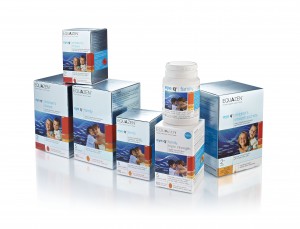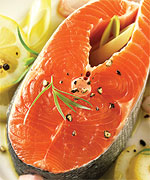A specific omega-3 and 6 supplement – Equazen eye q – can help reduce symptoms of Attention Deficit Hyperactivity Disorder (ADHD) in children according to a new study.* Equazen eye q, when taken in combination with ADHD medication can also reduce the dosage of medication required so reducing the side effects.
Commenting on this new study regarding Equazen eye q, Dr Carrie Ruxton, an independent dietitian notes: “This latest study investigated the effectiveness and safety of the Equazen eye q formulation on ADHD either alone or in combination with ADHD medication. The study evaluated 90 children (6-12 years) who were recently diagnosed with ADHD of all subtypes. At the start of the 12 month study, the children were divided randomly into three groups. Group 1 were given a daily dose of the ADHD medication methylphenidate (MPH). Group 2 was given a daily dose of six Equazen eye q capsules. Group 3 was given a combination of both MPH and Equazen eye q. Equazen eye q omega-3 and omega-6 formulation contains a specific (9:3:1) ratio of the fatty acids: eicosapentaenoic acid (EPA), docosahexaenoic acid (DHA) and gamma-linolenic acid (GLA).
“Of particular note, is that the combined treatment of MPH and Equazen eye q resulted in this group needing a lower dose of MPH to reduce their ADHD symptoms. The completion rate was also higher in this group, whilst the withdrawal rate and the incidence of adverse events were significantly lower. This suggests that the combination of Equazen eye q with MPH may lead to improved treatment adherence compared with MPH alone.
“Within this combined treatment group, the side-effects sometimes experienced with MPH – insomnia, tremors, tics, palpitations and hyporexia (loss of appetite) – were also significantly reduced.
“In the group given Equazen eye q alone, significant improvements were seen in the inattentive ADHD subtype.”
Commenting on the research further, Dr Eduardo Barragán who was the lead study author, and paediatric neurologist at the Hospital Infantil de México notes:
“The data results suggest that nutritional supplementation with the specific combination of omega-3 and omega-6 fatty acids – Equazen eye q – used in this study is an effective, well-tolerated option for children with ADHD when used alone. In addition, while results with stimulant medication tend to be seen very quickly, it is important to ensure dietary intervention with the Equazen eye q capsules is given for the appropriate amount of time for effects to be seen. Improvements were seen at four to six weeks with the full effect observed between eight to 12 weeks and lasting for the duration of the trial.”
In summary, Dr Carrie Ruxton notes: “The benefits of this specific omega-3 and omega-6 supplement in enabling the use of a lower dose of MPH while reducing the side effects of MPH is really good news.”
“Given the findings were based solely on the specific Equazen eye q formulation this latest research data should not be translated to other omega-3 and omega-6 preparations.”
Further studies are now being planned.
ADHD – facts and stats:
- Parents should always speak to their family doctor before giving supplements to their child with ADHD, particularly if medication is being prescribed.
- ADHD is a common and impairing behavioural condition affecting five to seven per cent of school-aged children with a higher prevalence in boys than girls (4:1). Around 80 per cent of children diagnosed with ADHD experience symptoms during adolescence and 67 per cent still have symptoms into adulthood.
- This condition affects parts of the brain which control attention, impulses and concentration and is characterised by three main types of ADHD traits. These include: the hyperactive-impulsive subtype, inattentive subtype, and the most common, which is the combined subtype with sufferers displaying the majority of ADHD symptoms.
Associated with a range of learning, social, emotional and behavioural difficulties, the effects of unrecognised ADHD can be disastrous for undiagnosed individuals and their families. Treatment with stimulant medication such as methylphenidate (MPH) remains one of the most common approaches to the management of ADHD.
However, in recent years, concerns have been raised as to the risk of potential adverse effects of MPH. These include depression, skin rashes and growth inhibition.Despite this, during the last six years, there has been a 50 per cent increase in UK prescriptions for ADHD medication prompting some experts to question whether there is an over reliance on medication to treat the condition.
Furthermore, experts believe there is a link between a deficiency of long-chain polyunsaturated fatty acids (PUFAs) (eg, EPA and DHA) and the development of ADHD.



